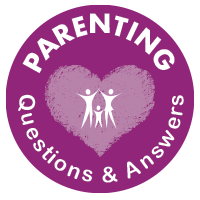Make a Plan
Structure bedtime and discuss this new structure with your child: “Tonight I would like to try something new! What would you say if for bedtime tonight we read one story and I give you 3 snuggles?” Then introduce an incentive for independent behaviour: “After that, I will leave the room, and if you can stay in bed like a big boy, in the morning we can play one round of tickle monster (or whatever fun reward you might want to introduce).”
Feel free to involve your child in choosing the reward: “what’s something fun we could do in the morning to celebrate how you stayed in bed all by yourself?!”
Always be sure to use verbal praise for wanted behaviours: “You did a great job falling asleep on your own!”, “I am so impressed! You stayed in bed all by yourself like a big boy!”
Bedtime Routines
Before implementing any strategies to address difficult behaviours during bedtime, always make sure you are first following a consistent bedtime routine. Here are some helpful sleep hygiene tips:
- Be consistent with bedtime and wake time, even on weekends.
- Ensure that your little one’s bed is only used for sleeping.
- Make sure your child’s bedroom is as cozy and comfortable (soothing music or quiet space, dim lighting, and cool) as possible to promote sleep.
- Start wind-down time early! Refrain from using screens, engaging in physical activity, and playing exciting games at least one hour before bedtime.
- Implement relaxation time by reading your little one a story, listening to calm music, doing deep breathing, and using positive soothing imagery like being on the beach, floating on a cloud, or laying on a hammock.
- Encourage the use of security items such as a blanket or stuffed animal during sleep to help transition into sleep mode.
- When sleep difficulties persist, keep a sleep diary to track naps, bedtimes, wake times to find patterns and understand where you can intervene.
For more information on sleep hygiene, you can consult the CHOC Children’s sleep hygiene handout at the end of this post: https://www.choc.org/wp/wp-content/uploads/2016/04/Sleep-Hygiene-Children-Handout.pdf
Know the Facts!
Toddlers (ages 1-2) need about 11-14 hours of sleep in a 24-hour period (including one or two daytime naps). Nap Times can often make bedtime easier and should be encouraged. Preschoolers (ages 3-5) need between 10-13 hours of sleep. At this age, nap times will decrease to once a day or may no longer be needed.
For additional information, you may wish to consult the kidshealth video at the end of this post: https://kidshealth.org/en/parents/toddlersleep-video.html?WT.ac=p-ra
Separation Anxiety
Separation anxiety is common for toddlers, so your child may eventually phase out of these types of behaviours. However, in the meantime, target bedtime resistance by sticking to your routine! If you notice frequent and persistent sleep difficulties, consult with your pediatrician, a child psychologist, or a sleep professional.

This post is part of the blog series "Parenting Q&A".
Do you need parenting advice? Please click below to submit your own question:
MORE POSTS IN THE SERIES











